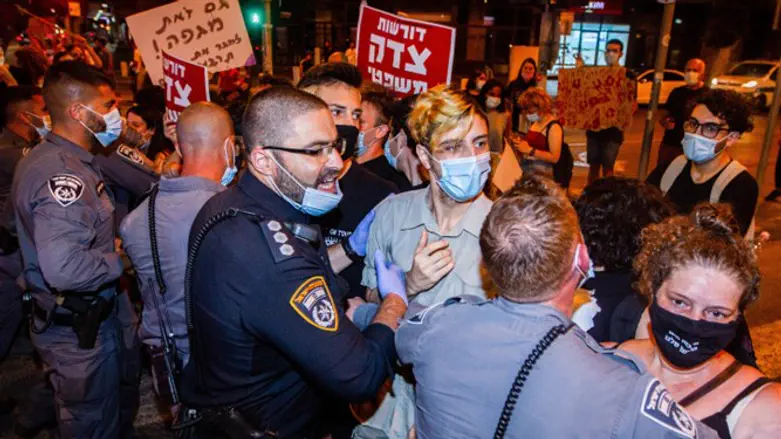
It is well-known that we can always find in the weekly Torah portions inspiration and relevance to events in our lives or in the world at large. It was for that reason that when I turn to the current Torah readings of Shoftim, Ki Tetzei and Ki Tavo, I can find some important personal guidance relating to the deeply disturbing event which is plaguing Israeli society at the moment.
The horrific alleged gang-rape of a sixteen-year-old girl must give us pause and requires from all of us to do a moral accounting.
Even in our current environment where we are rocked daily by political upheaval, security threats, social unrest on all sides - not to mention an ongoing pandemic - this incident has shocked us and must not be allowed to pass without a response. If we are to truly love our Jewish State and if we are to work tirelessly to make it the best country it can be, then we are compelled to recognize the nation’s thorns even as we grow and cultivate its many roses.
The current parshiyot (Torah portions) are dedicated to an extensive discussion of how to build a just society.
At its heart is a seemingly perplexing commandment of the Eglah Arufah - literally meaning the breaking of the calf’s neck.
This commandment surrounds a case where a human corpse, Jew or Gentile, has been found murdered, with the perpetrator unknown. In response, the Torah dictates that a unique ceremony take place whereby representatives of the High Court, the Sanhedrin and the community's rabbinic leadership breaking the calf’s neck, washing their hands at the location and leaving the mutilated animal for all to see.
While this ritual is admittedly shocking to our modern ears, commentators throughout the ages have taught that indeed, the specific intent was to shock the local population.
The message was that when human life is severely harmed- we have a social responsibility to know about the act, to internalize the pain of the victim, and to deal with the moral stain it leaves on the community.
This ritual demanding our empathy and response appears smack in the middle of the laws of warfare. For even if we are not directly involved, even if we are unrelated to the victim, even if we are in battle for our own protection, we must never lose empathy for the other. Empathy is a basic human – and certainly Jewish- value.
Within these parshiyot we also learn about the commandment of the overlooked sheaves and fruits to be left for the needy of our society. This is a critical reminder that however good our situation might be, whatever the yearly bounty might have bestowed upon us, we still have to give back.
Even in our modern day, less-agrarian cultures, the lesson is the same. However comfortable we might be, we are compelled to feel the pain of others and create a society that cares. Because when we don’t have a society that cares for others, then we ourselves are failing in what it means to be a Jewish community.
We find ourselves in the month of Elul in the days leading up to Rosh Hashana and Yom Kippur. These are known to be days of personal introspection, but also a period that demand national and social self-evaluation and criticism.
We must constantly be asking: what type of society are we creating for ourselves and our children?
Particularly for those of us who have chosen to make Israel our home, we know that there is so much of which to be proud of in this country. It is a land of strength and accomplishment in so many different realms. It represents the daily manifestation of ancient prophecies, of returning home and building a nation based on Jewish values and ideals.
Yet, when we fail to reflect on the very legitimate scars within this society, we fail to understand our responsibility towards this precious Divine gift.
The pain of the victim of this senseless act of violence is a pain which every one of us must feel. The recognition that we, as a society, are not adequately addressing the needs of women to be defended and respected is a failure that demands to be addressed and rectified. We cannot simply view these crimes as passing headlines that eventually fade away, without asking real questions about what lasting changes we can make in how we educate our children.
Our national tradition, both as Israelis and Jews, has provided us with countless role models and sources of inspiration to guide us in building a more just society.
In tribute to that past, we have both a personal and collective responsibility to do everything necessary to embrace those lessons in creating a better present and future.
Rabbi Kenneth Brander is President and Rosh HaYeshiva of Ohr Torah Stone, an Israel-based network of 27 educational and social action programs transforming Jewish life, living and leadership in Israel and across the world